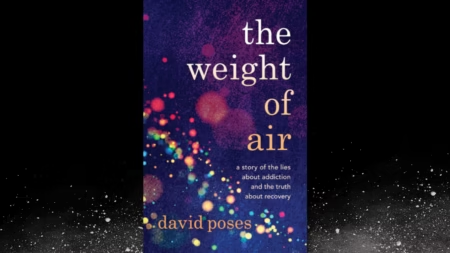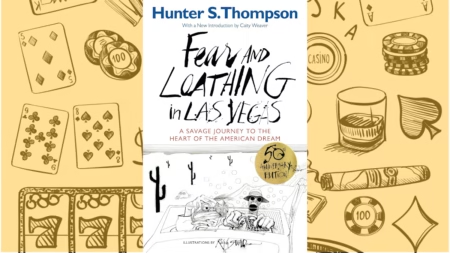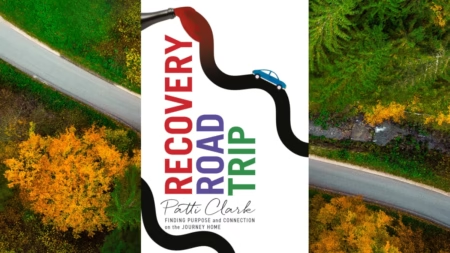
In Pain Killer: An Empire of Deceit and the Origin of America’s Opioid Epidemic, Barry Meier delivers a devastating exposé on the origins of the opioid crisis that has ravaged America for over two decades. Through meticulous reporting and a narrative that weaves between corporate boardrooms and the lived experiences of devastated communities, Meier lays bare the corporate greed and government negligence that turned a “wonder drug” into the epicenter of a national health catastrophe.
At the heart of this gripping narrative is Purdue Pharma and the Sackler family, whose aggressive marketing of OxyContin transformed the drug into a billion-dollar juggernaut. As Meier details, Purdue’s marketing machine was relentless, employing tactics that blurred the line between medical education and outright manipulation. Doctors were showered with incentives, patients were misled about the risks of dependency and addiction, and the broader medical community was lulled into complacency by Purdue’s claims that OxyContin’s slow-release formula made it less addictive than traditional painkillers. The result? An opioid-fueled epidemic that, between 1999 and 2017, claimed over 250,000 lives, tearing families apart, bankrupting individuals, and overwhelming public health systems across the country.
In Pain Killer, Meier introduces us to a cast of characters who fought valiantly, though often futilely, to sound the alarm about OxyContin’s dangers. Figures like Dr. Art Van Zee, a country doctor in rural Virginia, and Laura Nagel, a hard-charging DEA official, starkly contrast with the morally bankrupt executives at Purdue. These individuals saw firsthand the devastation wrought by the drug’s misuse and abuse, yet their warnings were repeatedly ignored or suppressed. Meanwhile, as high school cheerleaders like Lindsey Myers spiraled into addiction, Purdue continued to rake in billions, hiding critical data on OxyContin’s addictive potential from regulators and the public.
Meier’s skill as an investigative journalist is on full display here, as he seamlessly navigates between personal stories of loss and the larger forces of corporate malfeasance. In one particularly poignant section, he details how Purdue’s leadership not only understood the abuse potential of OxyContin but actively worked to conceal it. Internal memos, emails, and confidential documents—many unearthed years later—reveal that the company knew about the drug’s addictive properties and rampant misuse but chose to protect its profits rather than act. By the time Purdue and its top executives faced criminal charges in 2007, the damage had already been done.
What makes Pain Killer particularly compelling is Meier’s ability to make this story resonate on both a systemic and personal level. On one hand, the book is a searing indictment of how corporate interests can distort public health policy. It is, as The Seattle Times noted, a “timely, compelling, important” work that underscores the complicity of regulators, lawmakers, and the pharmaceutical industry in allowing the opioid epidemic to metastasize. On the other hand, the book is a deeply human story—of lives cut short, of families torn apart, and of communities forever changed by addiction.
In its updated edition, Pain Killer extends beyond the early 2000s, offering new insights into the Justice Department’s failure to bring the full weight of the law against Purdue’s executives. Meier reveals how, even after the 2007 guilty plea, the government allowed Purdue to continue business as usual. The company’s fortunes and the Sacklers’ philanthropic legacy were left untouched. The Sackler name continued to adorn museum wings and university buildings, even as the opioid crisis spiraled out of control. Meanwhile, the public health response was woefully inadequate, and the opioid epidemic morphed into a hydra, with fentanyl and other synthetic opioids claiming even more lives.
In many ways, Pain Killer feels like a true crime thriller—equal parts medical detective story, corporate exposé, and moral reckoning. Meier’s prose is clear and unflinching, and his journalistic rigor is evident in every chapter. The story he tells is not just about the fallibility of regulatory agencies or the moral bankruptcy of a pharmaceutical company; it is about the fundamental failures of American capitalism to prioritize human life over profit.
The strength of Pain Killer lies in its ability to condense the sprawling, complicated origins of the opioid epidemic into a narrative that is both informative and urgent. Meier succeeds in doing what few journalists have: he shows us not only how the opioid crisis came to be but also why it persists. The book is a stark reminder of the consequences of unchecked corporate power, and it asks us to reckon with the systems that allowed this epidemic to flourish.
For readers seeking to understand the roots of the opioid epidemic, Pain Killer is an essential text. It stands alongside works like Sam Quinones’ Dreamland and Patrick Radden Keefe’s Empire of Pain as a definitive account of how America’s opioid crisis was manufactured—and how it could have been prevented. In an era where corporate accountability seems increasingly elusive, Meier’s Pain Killer serves as a clarion call for justice. I give Pain Killer 3.5 out of 5 Sobees.
#QUITLIT Sobees Score: 3.5 out of 5


Read our Review of the Limited Series, Pain Killer, made by Netflix

MOVIE NIGHT WITH THE SOBER CURATOR: We explore movies that intricately weave addiction, recovery, and mental health into their compelling storylines. Imagine us as your diligent, bee-zy movie critics of the silver screen. Our buzzing hive has meticulously curated movies and documentaries that delve into these themes, allowing you to buzz through our captivating movie review archives. Our digital shelves are neatly organized alphabetically into Drama, Dramaedy, and Documentary sections, ensuring a delightful viewing experience.

TSC LIBRARY: Welcome to The Sober Curator Library! We don’t just read books; we immerse ourselves in literary journeys, tune in on Audible, and craft insightful reviews. Our digital shelves are organized into four genres: #QUITLIT, Addiction Fiction, Self-Help, and NA Recipe Books
NONPROFIT RECOVERY GUIDE at The Sober Curator, we believe in the transformative power of giving—whether it’s volunteering your time, sharing your unique talents, or donating money. Giving back not only strengthens our communities, but research shows it also increases happiness, promotes longevity, and deepens our sense of connection.
Created in partnership with the Break Free Foundation, our Nonprofit Recovery Resource Guide is a curated directory of reputable, recovery-related organizations. These groups not only welcome donations and volunteers but also provide vital assistance to individuals seeking help for addiction, mental health challenges, and recovery support.
We’re always on the lookout for new ways to give back. If you know of a nonprofit focused on recovery or mental health that should be featured, email us at thesobercurator@gmail.com.
<iframe src="https://embeds.beehiiv.com/ff9ed645-89da-4797-8ecc-6475cad73bb9" data-test-id="beehiiv-embed" width="100%" height="320" frameborder="0" scrolling="no" style="border-radius: 4px; border: 2px solid #e5e7eb; margin: 0; background-color: transparent;"></iframe>








